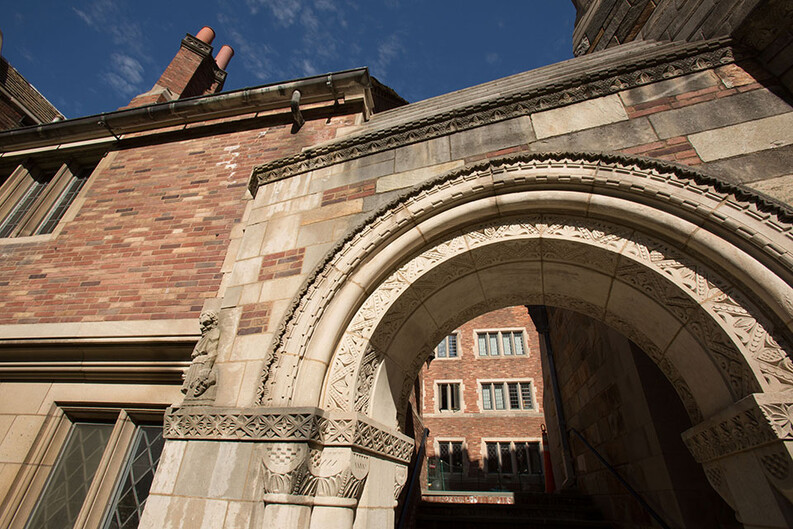Yale Cancer Center Grand Rounds Take on “A New Deal for Cancer”

On Feb. 15, the Yale Cancer Center and the Solomon Center for Health Law and Policy4 hosted a Grand Rounds discussion around the recently released book A New Deal for Cancer, edited by Alfred M. Rankin Professor of Law and founding Faculty Director of the Solomon Center Abbe R. Gluck and former Yale Cancer Center Director Charles Fuchs, MD, MPH. The book, which includes essays by a range of top experts in the field of cancer, explores the progress that has been made in the 50-year war on cancer and the most pressing challenges that lie ahead.
The event was moderated by Eric P. Winer, MD, who took the helm as Director of Yale Cancer Center earlier this month. The discussion included brief talks by Winer, Fuchs, and Gluck, as well as Melinda Irwin, PhD, MPH; Cary Gross, MD; and Greg Simon. All of these speakers contributed chapters to A New Deal for Cancer.
WATCH: Grand Rounds discussion of A New Deal for Cancer5
The discussion covered a broad range of topics, including:
- The progress made in cancer care over the past 50 years, particularly in targeted therapeutics
- The critical need to address racial and socioeconomic disparities in access to care and outcomes
- Key cost drivers of cancer-related spending, and how to prioritize moving forward
- The steps required to expand access to screening, preventative care, and insurance coverage
- The meaningful and personal relationship between cancer patient and clinician
- The need for innovation and collaboration between the public sector, the private sector, and patient communities
The talk came on the heels of President Biden’s announcement of the reignition of the Cancer Moonshot, providing a dynamic framework for the conversation. All participants agreed that an extraordinary amount of progress has been made since the War on Cancer was launched in 1971, but that there is much more to be done in the next 50 years to mitigate the impact of cancer on patients, survivors, and caregivers across the globe.


